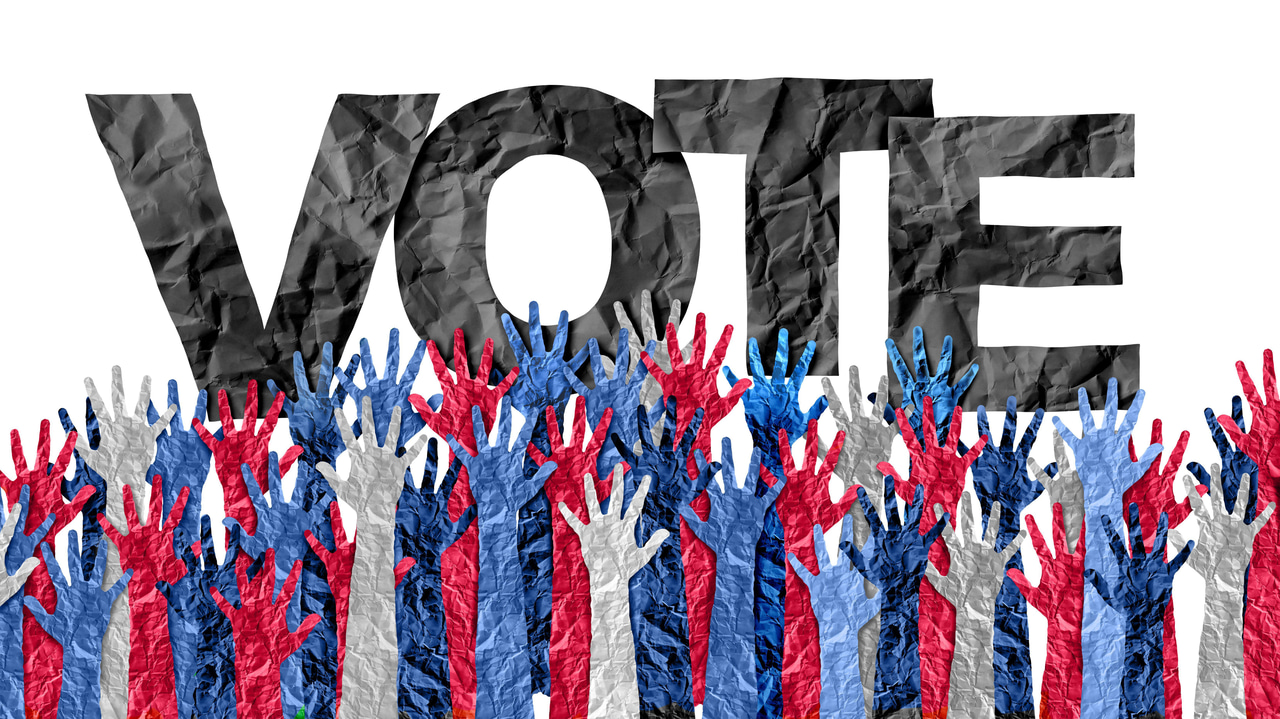On Election Day, Disinformation Worries Security Pros the MostOn Election Day, Disinformation Worries Security Pros the Most
A Dark Reading poll reveals widespread concern over disinformation about election integrity and voter fraud, even as Russia steps up deepfake attacks meant to sow distrust in the voting process among the electorate.
November 5, 2024

As voting in the 2024 US presidential election draws to a close today, disinformation remains the most top-of-mind voting-adjacent threat for cybersecurity professionals.
That's according to a fresh Dark Reading poll of nearly 1,000 readers, who were asked: "What are you most concerned about when it comes to election-related security threats?"
The top answer, accounting for 41% of the responses, was "deepfakes, misinformation, and disinformation." That was followed by tampering of polling data (23%); hacking operations by other countries like Russia, China, and Iran (20%); and AI-powered high-volume phishing using election lures (16%).
Debunking Deepfaked Videos US Elections "Never More Secure"
The results come as US federal agencies dismissed two inflammatory videos purporting to show vote tampering; the videos, they said, are merely the work of Russian adversaries using deepfake technologies to sow distrust in the electoral process and call the results into question.
One of the videos, debunked by the Office of the Director of National Intelligence (ODNI), the FBI, and the Cybersecurity and Infrastructure Agency (CISA), shows protestors supposedly destroying ballots in the battleground district of Bucks County, Pennsylvania. The other shows what it claims is video evidence of an illegal immigrant from Haiti voting over and over, in multiple counties in Georgia. The FBI and CISA also discounted the clip as fake and the work of Russian threat actors.
The videos are the latest efforts by a threat actor known as Storm-1516, which in September reached millions of viewers with a video showing alleged Harris supporters attacking attendees at a rally with Republican candidate Donald Trump; and with another that claimed Democratic candidate Kamala Harris’ was responsible for a hit-and-run car accident.
"US govt calls out more election-related Russian troll farm nonsense. Expect more of this. They’re flooding the zone, exploiting historical (and current) tropes, including racial issues," former CISA Director Chris Krebs said in a series of posts on social platform X. "This will only continue thru the count & certification process. Important to rapidly identify and debunk this garbage, and for platforms to label as foreign generated or remove entirely."
He added, "Some mental toughness is in order right now. Voters regardless of political affiliation need to remain aware they’re being targeted and not fall for it."
Blackbird.AI senior intelligence analyst Rennie Westcott agrees with Krebs that Election Day is unlikely to be the end of the efforts to create distrust in US election processes.
"Foreign adversaries will try to confuse Americans about the authenticity of state election results after the polls close and tallies begin to trickle in," he says, adding that there will likely be ongoing efforts to "fan internal social division," including targeting minorities in swing states.
Current CISA Director Jen Easterly also has acknowledged the "firehouse of disinformation" that has been swirling around the election so far, driving fears of voter fraud and election tampering, especially among Republicans. The onslaught of distrust has been advanced considerably in the last year through the use of generative AI and deepfake capabilities. But she reiterated in a series of interviews with media that voting infrastructure is nearly bulletproof, and the US elections "have never been more secure."
“I can say [that] with confidence based on all the work that we've done together since 2016," Easterly told National Public Radio. “There are cyber threats, there are physical threats to election officials, but we're at a point now with our election infrastructure secure and the election community prepared to meet the moment on the 5th of November.”
In the meantime though, Blackbird.AI senior intelligence analyst Rennie Westcott agrees with Krebs that Election Day is unlikely to be the end of the efforts to create distrust in US election processes, so it's best to be prepared for more conspiracy theories about voting fraud and the like to continue to circulate.
"Foreign adversaries will try to confuse Americans about the authenticity of state election results after the polls close and tallies begin to trickle in," he says, adding that there will likely be ongoing efforts to "fan internal social division," including targeting minorities in swing states with tailored disinformation.
Don't miss the latest Dark Reading Confidential podcast, where we talk about NIST's post-quantum cryptography standards and what comes next for cybersecurity practitioners. Guests from General Dynamics Information Technology (GDIT) and Carnegie Mellon University break it all down. Listen now!
About the Author
You May Also Like



_Nils_Ackermann_Alamy_Stock_Vector_.jpg?width=700&auto=webp&quality=80&disable=upscale)
